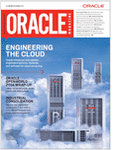 Waste Management World magazine for August 2011 edition has been released. You can read latest news and global developments from global waste management industry in this issue. Here are feature articles for this month.
Waste Management World magazine for August 2011 edition has been released. You can read latest news and global developments from global waste management industry in this issue. Here are feature articles for this month.
THE BURNING QUESTION: How is the public perception of waste to energy improving?
There’s no doubt that the role of waste to energy incineration in meeting the world’s residual waste treatment needs is catching on. A new German report states that there are 2150 waste incineration plants in operation in the world and global capacity is set to increase by 60 million tonnes annually by 2015. Unsurprisingly, China is at the head of this expansion.
Hitting the Gas
With its goal of becoming a fossil free city by 2050, the municipality of Stockholm has been the pioneer of biogas and introduced CBG (Compressed Biogas) driven cars to Sweden in 1996. This was later followed by the introduction of city biogas buses, trucks, vans, taxis and company cars, thus further increasing the demand for biogas.
Swiss on a Roll?
Switzerland. What images come into your mind? Cuckoo clocks. Toblerone chocolate bars. Well respected and profitable banks. Mountains. Yodelling. There are plenty of stereotypical images which I guess we could amuse ourselves with. But the question then arises – at whose expense are we making such wisecracks? My theory is, by underestimating the Swiss and their quiet determination, the joke is on the rest of us.
Taylor Made?
How to get the inside story on waste and recyclable materials bin and container construction? Easy, get inside the bin and check out the details, close-up and personal! And during a visit to Taylor’s plant near Droitwich, Worcestershire, UK, that’s exactly what I was able to do.
The Lithium Battery Recycling Challenge
Increasing oil prices, demand for urban vehicles, megacities and focus on sustainable transportation have kickstarted a substantial trend towards automotive electrification such as hybrids and electric vehicles (EVs). Estimates suggest that by 2020, EVs are likely to account for more than 7% of the global transportation market.
Self Regulation: Lessons from PVC Recycling
Across the globe governments and other stakeholders are increasingly looking towards ‘light touch’ legislation, with the aim of encouraging industries towards environmentally and socially responsible self regulation. This can be seen in the EU’s goals on sustainable growth in its Europe 2020 growth strategy, and in the UK with the recent Waste Review leaning towards voluntary agreements and reducing the burden of regulation on businesses.
Showing the Red Light to Waste Trafficking
The problem of waste trafficking is complex. How has this increasing trade in recyclable waste and all too often non-recoverable wastes arisen? Until recently most products were produced close to where they were consumed.
Arabian Blights
Across Arab countries per capita waste generation ranges between 0.5 kg and 1.5 kg per day, with statistics indicating that organic waste accounts for over half of the total Municipal Solid Waste (MSW) in some nations. While the rate of waste generation is growing across the whole region, the rate differs from country to country, due to factors such as social conditions and wealth.
Decisive Disaster Debris Management
Debris and waste are unavoidable by-products of natural and anthropogenic disasters. Waste management in the aftermath of major disasters is complicated by the priority for life saving and safety efforts. Then comes the interrelated concerns associated with availability of disposal capacity, availability of treatment or recycling/reuse options, transport of wastes, access to waste management facilities, environmental hazards, financial responsibility, and ownership related legal and ethical issues.
Supersized Biowaste Treatment to Admire
Around 10 million people in East Africa are currently at risk of starving, in what aid agencies are calling the worst drought for 60 years. It is more than a little perplexing, therefore, that a recent study by the United Nations Food and Agriculture Organisation (FAO) shows that one third of the entire World’s food production – about 1.3 billion tonnes – goes to waste.
Long-Living Landfills
In the context of urban development and growing land pressure, closed non-hazardous municipal solid waste (MSW) landfills offer significant potential for beneficial reuse. Parks and recreational open areas, golf courses, greenspace set-aside, and/or wildlife habitation are a few of the potential deveopments.
Free Download Waste Management World Magazine August 2011
Geographic Eligibility: Selected International
About Waste Management World Magazine :
Waste Management World delivers the latest news and global developments from across the industry. Articles report on international projects, best practices, technological developments, trends and legislation. Each issue covers biological waste treatment, collection and transport, recycling and waste minimization, sanitary landfill and thermal treatment of waste.




